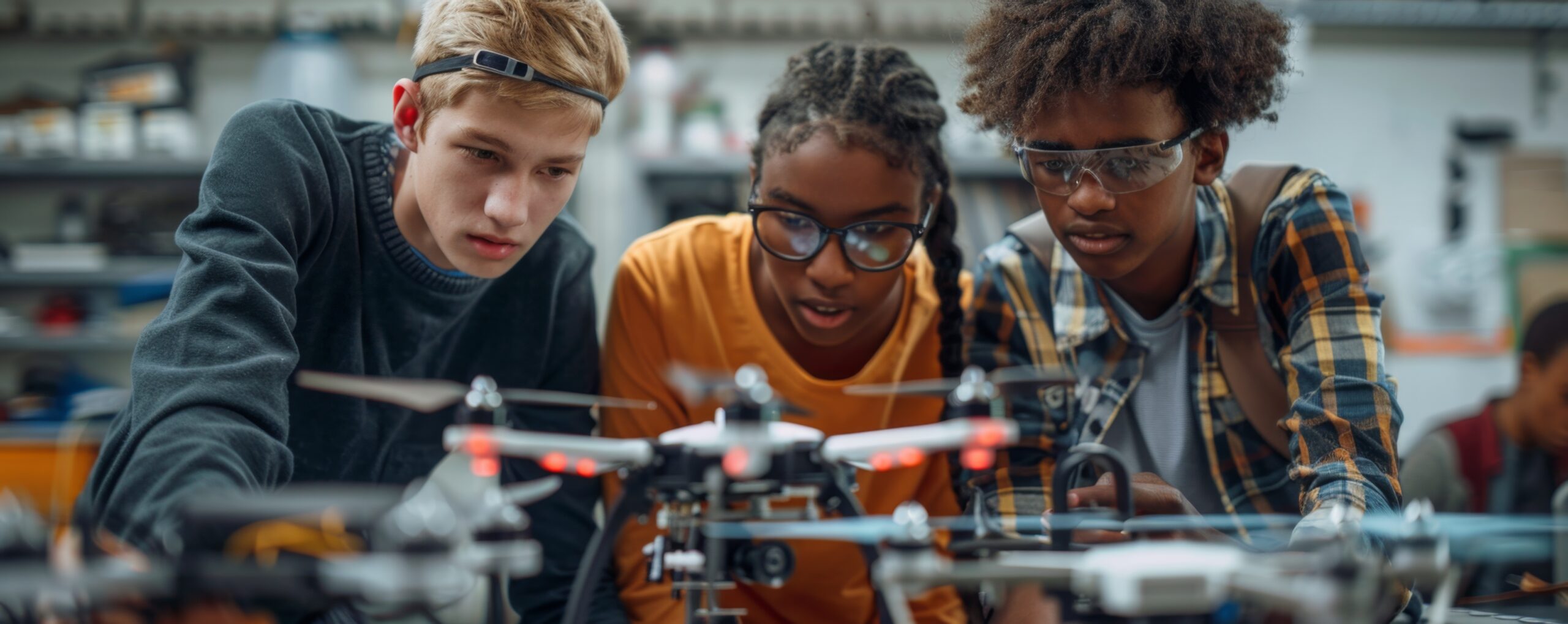Tulsa Innovation Labs, PartnerTulsa, and the Opp Project Launch “Pathways to Autonomy” to Inspire Tulsa’s Next Generation of Innovators.

Source: Tulsa Innovation Labs
Tulsa Innovation Labs, PartnerTulsa, and the Opp Project today announced the launch of Pathways to Autonomy, a citywide STEM initiative designed to prepare Tulsa youth for careers in autonomous systems, robotics, and advanced mobility technologies.The program provides high-impact, hands-on learning experiences from kindergarten through high school—expanding access to after-school robotics, drone technology, coding, and engineering clubs across Tulsa. By building clear pathways from curiosity to career, the initiative aims to position Tulsa as a national hub for talent in autonomous systems and advanced mobility.
“Pathways to Autonomy is about opening doors—early and often,” said Lawrence Ganti, Director of Workforce & Talent at Tulsa Innovation Labs. “By bringing hands-on robotics, drones, and coding into after-school spaces, we’re giving Tulsa students the skills and the spark to pursue careers in autonomy and advanced mobility. Just as important, we’re doing it in partnership with educators and employers so that what students learn maps to real opportunities here in Tulsa.”
The Opp Project’s Tulsa EnrichED program sets a strong foundation for this partnership. Having reached 2,907 youth across 46 schools during the 2024–25 school year, the project now expands that momentum by supporting 32 robotics, engineering, and STEM clubs across seven feeder patterns in the 2025–26 school year. This will open access for hundreds more students and reinforce Tulsa’s leadership in building equitable pathways to the future of work.
“Through Tulsa EnrichED, we’ve seen firsthand how powerful expanded learning can be in shaping students’ futures,” said Lauren Sivak, Executive Director of the Opposition Project. “Pathways to Autonomy builds on that foundation. Together, we are connecting curiosity with real career opportunities and ensuring Tulsa youth are not only inspired by technology, but prepared to lead in it.”
Measurable Impact
- Students served: an estimated 750+ students over the course of the initiative
- Educators supported: 25+ teachers annually to lead and facilitate clubs
- Depth of engagement: 28–84 hours of STEM programming per student, per year
- Career connections: 100+ career exposure touchpoints annually connecting students with local industry professionals
Michelle Barnett, SVP of Economic and Workforce Development at PartnerTulsa, emphasized the regional economic potential:
“Advanced mobility is a defining opportunity for Tulsa’s economy. This collaboration ensures our young people—and their teachers—are ready to seize it. By aligning K-12 programming with industry, we’re strengthening a homegrown talent pipeline that grows an economy with opportunity for all and creates future-ready jobs across our community.”